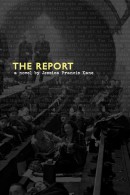 Kane’s first novel begins in London in 1943, with Brits wary of retaliation for a recent and devastating bombing of Berlin. In this heightened state, a siren sends them toward tube station shelters with a particularly quick step. At the Bethnal Green station, something happens in the crowd, a disturbance that leads to a crush. This real-life incident, which killed 173 people, provides the basis for Kane’s gentle, smart reimagining.
Kane’s first novel begins in London in 1943, with Brits wary of retaliation for a recent and devastating bombing of Berlin. In this heightened state, a siren sends them toward tube station shelters with a particularly quick step. At the Bethnal Green station, something happens in the crowd, a disturbance that leads to a crush. This real-life incident, which killed 173 people, provides the basis for Kane’s gentle, smart reimagining.
The official word from the government is that the shelter took a small hit from the sky. But the reader knows the shelter took no hit at all, and the book’s characters are suspicious: “The East Enders knew what death looked like. Three years of aerial bombardment — the specter of firestorms, collapsed buildings, charred and crushed bodies — had made everyone a coroner, and this quiet compression at Bethnal Green, in which some died and others lived, was, frankly, hard to believe.”
We flash forward to 1972, when Laurence (“Laurie”) Dunne, the magistrate who had been charged with investigating the tragedy and writing its official report, is visited by a young man making a documentary about the historic event. The parallels to 9/11 and its resulting report are clear without being spoken, but also somewhat beside the point — Kane is interested in how both events resemble any and all attempts to understand tragedy and assign blame for it.
The short chapters alternate between the past and present, a tactic that could have been jarring but instead neatly echoes one of the book’s themes: the way the past and present are never as far apart as we like to imagine. Kane, an American, has written of the skepticism some British readers bring to her book, but if anything, her unrushed, occasionally elegiac tone can seem more British than American. Bertram Lodge is a 22-year-old character kept out of the war because of his flat feet, and Kane writes: “It seemed impossible to Bertram that his feet would be the reason he was home watching sparrows instead of fighting.” It’s a lovely and indicative sentence.
Laurie’s inquiry yields voluminous and often contradictory information. The details of the night come to seem as hopelessly knotted as the people on the stairs were, “jumbled together, like fingers clasped in wretched, twisting prayer.” The resolution of the mystery, which I won’t give away here, is not central to the book’s project. For one thing, there’s enough foreshadowing that the answer is given gradually rather than as a eureka moment. But Kane is less interested in suspense than in mood. Her wartime London is grim but affectionately evoked — as seen in one well-chosen image, a churchyard that used flowers that “grew well on bomb sites.”
The Report by Jessica Francis Kane
Graywolf, 256 pp., $15.00

